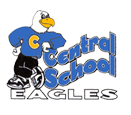Expectations & Procedures
Expectations & Behavior:
The following are my expectations for the speech room, and they will be in effect at all times:
- Walk quietly to and from the speech room
- Follow directions
- Keep your hands, feet, and objects to yourself
- Take turns (wait for your turn patiently and quietly)
- When in a group, raise your hand if you have something to share
- Treat others the way you want to be treated
I require that my students follow these speech room expectations. If a student does not follow one of these expectations, he/she will be given a verbal warning and a warning card indicating whether it is his/her first or second offense that day. If a student does not follow these expectations for the third time that day, he/she will be asked to return to class. Speech/language sessions are only 25 minutes long, so time cannot be taken away from the other students to address these discipline issues. I will also either make a phone call home to discuss the situation with this student's parent or send an email to the student's parent describing the incident. If a student participates in a severe behavior, such as fighting or being verbally abusive, he/she will be sent to the principal. It is important to note, however, that if a student is utilizing a specific behavior plan in class, then I will follow that plan (when appropriate) and these expectations may be modified to meet the individual needs of this student.
One way that I have found to prevent behavior issues in the speech room is to make speech/language sessions "fun" while targeting each student's speech/language goals. I like to find out my students' interests and to incorporate them into their therapy sessions. I also tend to use games to help keep students engaged and motivated during their therapy sessions. Not only are games a great way to break tasks into smaller units when working on various articulation, voice, fluency, or language skills, but they also allow students to work on the following skills: turn-taking; social interactions; asking and answering questions; patience; conflict resolution; problem solving; and functional communication. In addition, I have found that short, animated video clips are another way to keep students on task and working during their speech/language therapy sessions. These video clips can be used to target some of the following skills: main idea; summarizing; predicting; problem solving; expressive language; grammar/syntax; making inferences; perspective taking; practicing fluency strategies; and practicing target articulation sound. So, if your child comes home telling you that he/she played a game or watched a video during his/her speech/language session, please know that these items were selected to make the therapy session "fun" while targeting your child's specific speech/language goals and objectives.
Speech Therapy Session Feedback Forms:
This year I am not using speech folders. I found that too often these folders got lost or that they were challenging for students to remember to bring to their speech/language sessions. Instead, I will be sending home a "Speech Therapy Session Feedback" form after each session. This form will list what your child worked on during his/her speech/language session as well as contain information about how your child performed during his/her session. In addition, this form might give you information about the specific activity that your child participated in that day and any follow-up activity/homework for your child. This feedback form does not need to be returned to school. I just ask that you look for the form each day following your child’s speech/language session and review it with him/her.
Website/Webpage:
If you are ever looking for additional speech/language activities, please refer to the district's speech/language website. The link is provided here: Speech/Language Parent Information Website. I will also be updating my website monthly to provide you with interesting articles and information that pertain to speech/language skills.
Contact Information:
Your child is very important, and I am always available to discuss his/her speech/language skills and progress. Should you have any questions, I can be reached at 908-753-5300, extension 6232 or by email at areu@warrentboe.org. I am also available for conferences throughout the year at mutually agreed upon times. Finally, I will be sending home progress reports every time your child receives a report card.
I look forward to working with you and your child this school year!
Last modified by Mrs. Reu on Sunday, September 12, 2021

 Receive Notifications
Receive Notifications Contact Us
Contact Us